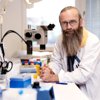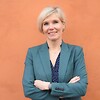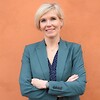Fritextsökning
Artiklar per år
Innehållstyper
-

Anna Törner: The minute between life and death
“I have never told anyone about this day that happened more than 20 years ago. But I sometimes reflect on what happened, on what might have happened. When I try to understand why I haven’t told anyone, I find the answer: a feeling of shame. There is no forgiveness for something like this, even though it is very human to be distracted for a moment,” Anna Törner writes in a column.
-

Norwegian company wins bidding battle for Sensidose
The lengthy battle to acquire medical device company Sensidose is apparently over. Generic medicines company EQL Pharma is pulling out, selling its shares and leaving the way open for Norwegian company Navamedic.
-

Samuel Lagercrantz: The government’s performance in healthcare and life sciences so far
Since the change of government in Sweden, developments in the healthcare sector have shown promising signs, but the outlook in life sciences is less promising, writes Samuel Lagercrantz in an editorial.
-

He got inside the head of Sweden’s vaccine hunter
The hunt for the COVID-19 vaccine is the theme of the new book Vaccinjägaren (The Vaccine Hunter). It tells the story of Richard Bergström’s mission as Sweden’s national vaccine coordinator and the scheming that went on behind the scenes in Europe. Author and medical journalist Nils Bergeå co-wrote the book with Richard Bergström.
-

Conference on Alzheimer’s reveals several advances in the field
In Gothenburg, Sweden, researchers and pharmaceutical companies from all over the world gathered to discuss one specific issue – neurological diseases. Life Science Sweden has talked to some of those that attended the conference.
-

Meeting with focus on South Korea and Japan’s life sciences
Large, complex and exciting – this is how Britta Stenson, Business Sweden, describes the life science markets of Japan and South Korea, which took centre stage during a webcast seminar.
-

“An entire industry is about to be wiped out”
According to Jennie Ekbeck, CEO of Umeå Biotech Incubators, Sweden risks not having any small diagnostic companies left in five years.
-

Column: ”Life as a F1 race”
"The F1 car makes several pit stops during a race and during a lifetime the human being may also have to come in several times for maintenance", Björn Ursing writes in a column.
-

Editorial: ”AI that both impresses and frightens”
”In the past, I've rarely been particularly impressed by something that was produced by AI. But this is something completely different”, Samuel Lagercrantz writes in an editorial.
-

Column: ”Authentic leadership and clear mandates pave the way for more female CEOs”
”I believe that the aspect of having clear mandates and titles on the one hand and women progressing into top positions must be explored further”, Helena Strigård writes in a column.
-

Column: ”We need to exploit the benefits of the regulations“
You don’t need to search long on the Internet to find lists of the most innovative countries with Sweden ranking at the top. Sweden generally offers good conditions for growing new solutions, but it is also becoming increasingly clear that we are challenged in one area – regulations, writes Björn Arvidsson in a column.
-

The government proposes fines for pharmaceutical companies that fail to notify drug shortages in time
According to a compilation from the Swedish Medicines Agency, the number of residually notified medicines increased by 54 % in Sweden last year compared to the previous year. In a bill presented by the government a number of proposals are put forward to counteract the problem.
-

ALS – When the body has given up, but the brain persists
The nerve disease ALS gradually deprives the patient of control over the muscles and, eventually, also of speech. The eyes continue to function, though, and with the help of, among other things, a Swedish-developed invention, communication with the outside world can continue. “It’s their window to the world,” says ALS researcher Caroline Ingre.
-

Marie Gårdmark: Potential step change – EU regulators get to play with data
A new pilot from EMA is starting in September to assess wether the analysis of 'raw data' by regulatory authorities improves the evaluation of marketing approval for new medicines. Marie Grådmark writes in a column that she is looking forward to the outcome of the pilot to hopefully then understand if “in house” analyses actually will add value.
-

Anna Törner: Kalashnikovs in a new guise
Thanks to resisting European regulatory authorities, Europe has been spared the opioid epidemic. In the 1960s, the situation was the opposite as the American pharmaceutical authority, the Food and Drug Administration (FDA), refused to approve thalidomide (Neurosedyn), writes Anna Törner in a column.
-

Lucy Robertshaw: Did you know Stockholm wants to be in top 5 in the world for Life Sciences?
Karolinska Institutet Solna Campus has certainly become the next “Kendall Square”, writes Lucy Robertshaw in a column.
-

Björn Arvidsson: “We need robust and recognized ecosystems for continued competitiveness”
“We have idea carriers and excellent innovation opportunities, and now we must invest in creating ecosystems that provide them with even better growth opportunities,” Björn Arvidsson writes in a column.
-

Marie Gårdmark: New incentives for orphan products on its way
"Let’s hope that the learnings from development of new therapies for rare diseases will spill over to more common conditions, orphan products paving the wave for drug development in a broader context", writes Marie Gårdmark in a column.
-

A growing industry in Denmark: “One new life science company a week”
The life science sector in eastern Denmark continues to grow in the number of employees, as well as the number of companies. An emerging problem is the shortage of labour, a new report reveals.
-

Anna Törner: To kill your darlings
Hopes were high when Anna Törner and her colleague started a study on a dietary supplement that seemed unbelievably good. “Enthusiastically, we dreamed of exciting results and perhaps a publication in a high-impact journal,” she writes in a column.
-

Lucy Robertshaw: Are we in the perfect storm?
“Is there a perfect storm on the horizon again as elective surgeries were cancelled due to patients being admitted with Covid-19? We now have a long backlog of people who are presenting with chronic diseases that need to access healthcare again”, writes Lucy Robertshaw in a column.
-

Björn Ursing: Physicians new role in AI driven healthcare
”AI could be the key we need for tomorrow’s healthcare, but it is not a stand-alone tool”, writes Björn Ursing in a column about how the role for physicians changes in the era of AI.
-

Samuel Lagercrantz: Immunotherapy against cancer is still in its early stages
For more than 100 years, researchers have tried to target the body’s own immune system to fight cancer cells. They have occasionally been laughed at and ridiculed by the medical establishment. However, from our perspective today, we can sum it up with the saying: He who laughs last laughs best, writes Samuel Lagercrantz in an editorial.
-

Björn Arvidsson: ”We need to change perspective”
If you say “life science” to a person on the street and ask them to explain what it is, you will probably get no good answer. The same question to your network will generate as many versions as the people you ask. Most likely, we will miss many opportunities with our lack of communication, writes Björn Arvidsson in a column.